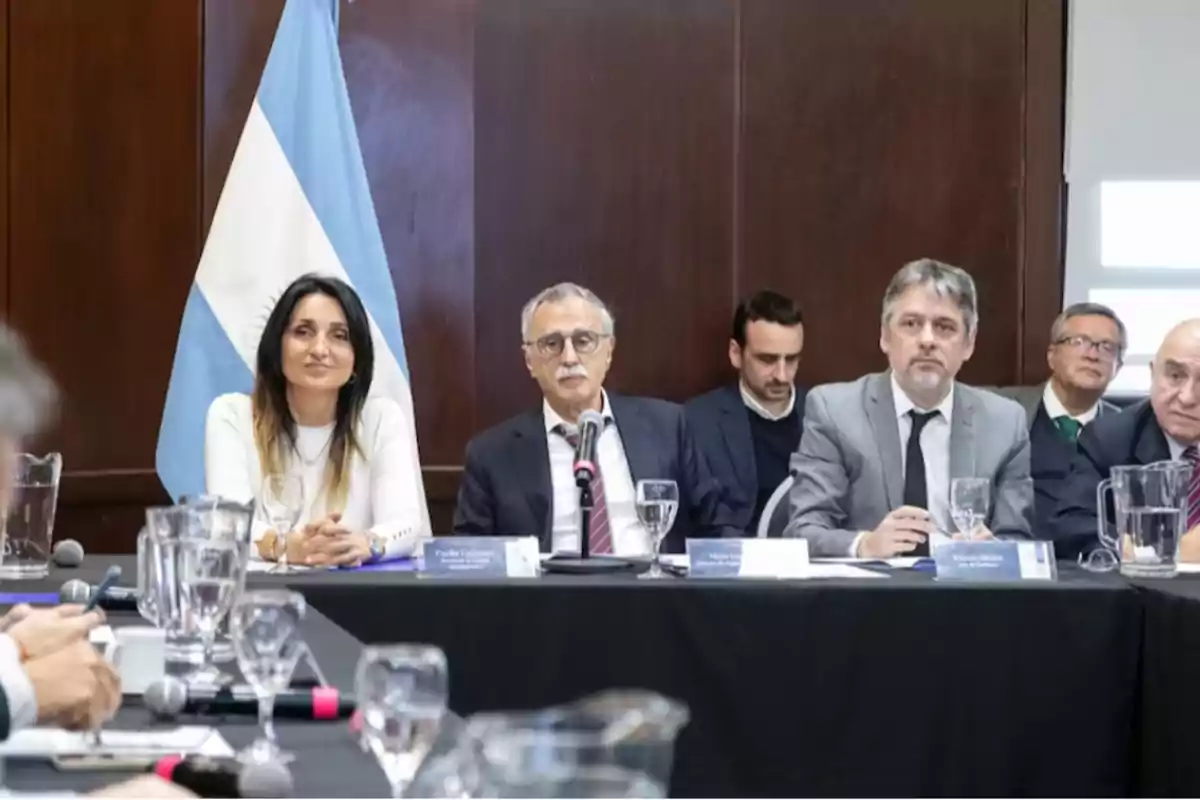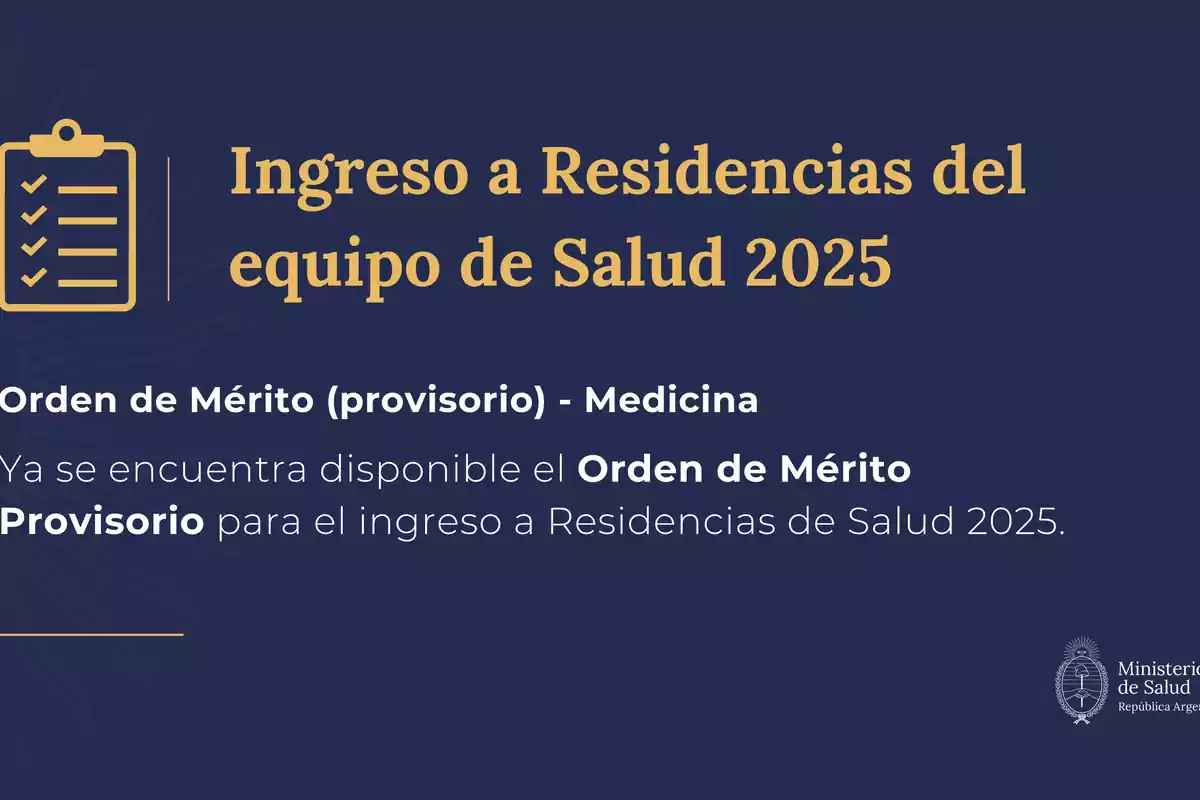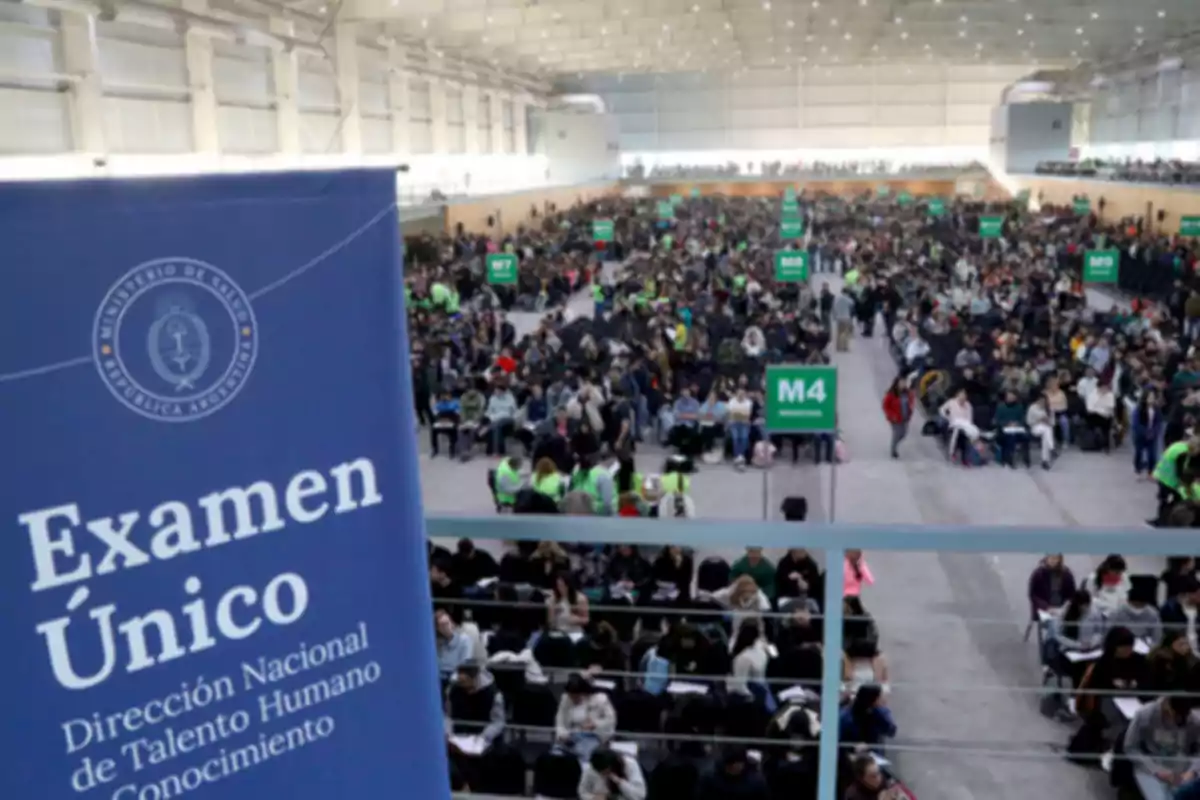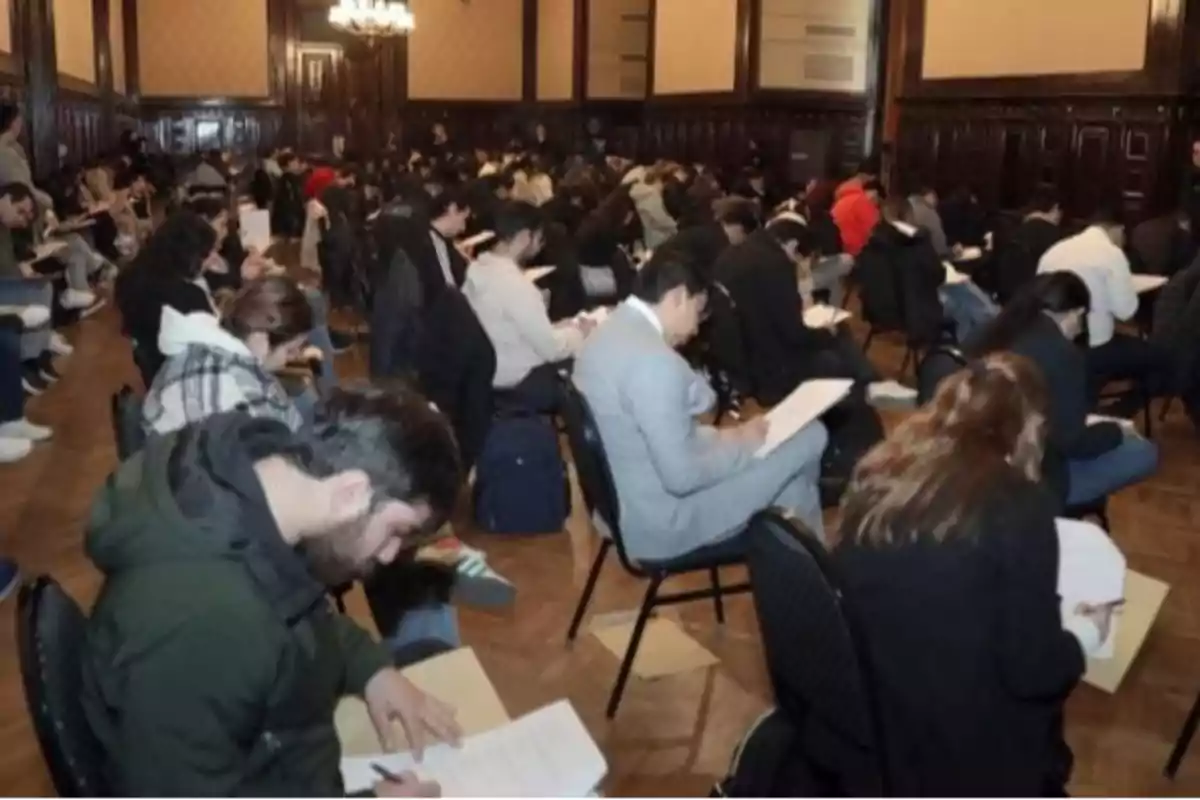
Health: the merit ranking for access to medical residencies has been published
The department led by Mario Lugones released the Provisional Order of Merit for admission to the 2025 Health Team Residencies
The National Ministry of Health, led by Mario Lugones, released the Provisional Merit List for entry into the 2025 health team residencies, ranked by score.
The Ministry highlighted that applicants can check their position and submit any type of claim until August 18.

The final merit list will be published on August 20, while the allocation of positions will take place between August 25 and 29.
Higher score for Argentine university graduates
An additional 5 points were added for those who completed their entire undergraduate degree at Argentine universities.
Regarding the hiring modality, new residents can choose between two options: Institution Scholarship or Ministry Scholarship, with differences in hiring and benefits.
The link to check the provisional merit list.

Meanwhile, it was reported that starting in 2026, provinces will be responsible for administering the exams for medical residencies.
This is a step that strengthens provincial autonomy and responds to a long-standing demand.
Each jurisdiction will organize and finance its own residency entrance exams.
The measure, adopted at the last meeting of the Federal Health Council (COFESA) chaired by Minister Lugones, comes after the scandal over fraud in the 2025 Unified Residency Exam.
"The health system is jurisdictional. Only each province knows what type of doctors it needs for its population. This was the last group of doctors whose residency scholarships were funded by the Nation. From now on, the exams will be administered and funded by the jurisdictions," Lugones stated, emphasizing that health and professional training must adapt to local realities.
Timeline of the scandal over suspicious results in the residency exams
In the Unified Medical Residency Exam held on July 1, 2025, anomalies were detected in the results: an unusually high number of applicants—many from foreign universities historically underrepresented among the top performers—achieved scores above 85 points, even over 90, which raised suspicions about their legitimacy.
The Ministry of Health launched an internal audit to analyze academic performance, the record of the universities of origin, and individual trajectories. A total of 268 cases with high or inconsistent scores were reviewed.

Of the 268 suspicious cases, 141 were summoned to retake the exam on August 7 under strict conditions: without technological devices (cell phones, watches, smart glasses, etc.) and with supervision even for leaving the classroom.
The rules imposed for this new instance stipulated that if the new score differed by up to 10% from the original exam, the previous score would be accepted; if it exceeded that margin, it would be replaced by the most recent result.
Conclusive results
Of the 141 summoned, 117 applicants appeared (the majority foreigners). Surprisingly, none managed to validate their original score; in many cases, scores dropped from over 90 to averages between 40 and 60.
The Ministry of Health filed a criminal complaint with the federal judiciary for fraud against the public administration. The complaint points to the use of technological devices—such as glasses with cameras—to record the exam and send the questions to third parties who answered in real time.
More posts: